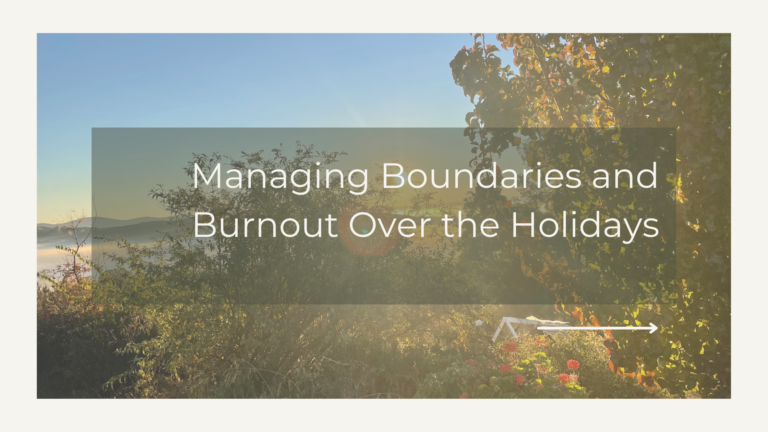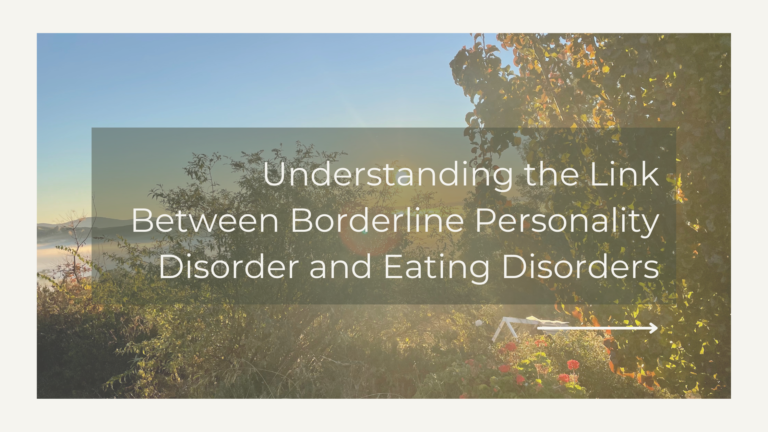Dealing with Difficult Personalities at Christmas
Christmas can be a time of joy and celebration, but for many, it also brings added stress and tension, particularly when dealing with difficult personalities…
Christmas can be a time of joy and celebration, but for many, it also brings added stress and tension, particularly when dealing with difficult personalities in family or social settings. Whether it’s a critical parent, an overly controlling relative, or someone with whom you have unresolved conflict, the holiday season can magnify these challenges. These interactions often trigger past issues, leading to heightened emotions and anxiety.
If you find yourself dreading family gatherings or feeling drained by certain personalities, you’re not alone. The good news is, with some preparation and the right tools, it’s possible to manage these situations with more ease and confidence. In this blog, we’ll explore practical strategies for dealing with difficult personalities at Christmas, so you can focus on the aspects of the holiday that bring you joy and peace.
Understanding the Impact of Difficult Personalities
Before diving into solutions, it’s important to recognise what we mean by “difficult personalities” and how they can affect our holiday experiences. Difficult personalities can take many forms, from those who are overly critical or controlling to individuals who might display passive-aggressive behaviour or exhibit narcissistic traits. These traits often create tension in relationships, making interactions feel draining or even toxic.
At Christmas, these dynamics are amplified. The holiday season comes with heightened expectations—whether it’s the pressure to “make everything perfect” or to meet everyone’s needs. For some, being around certain personalities can evoke old family dynamics or past hurts, leading to a sense of emotional overwhelm or frustration.
For example:
- The Critic might point out imperfections in your home, cooking, or even your lifestyle choices, leaving you feeling inadequate or defensive.
- The Controller may try to dictate how things should be done, from organising the holiday plans to deciding who sits where at dinner, causing frustration or a feeling of powerlessness.
- The Passive-Aggressive person may not openly express their displeasure but will make pointed comments or give backhanded compliments, leaving you uncertain about how to respond.
- The Narcissist might demand attention or validation, ignoring your needs and leaving you emotionally exhausted.
When you’re already dealing with the stress of the season, these interactions can feel like the last straw. It’s important to remember that the behaviour of others is about them, not you. However, it’s also essential to acknowledge the impact these dynamics can have on your emotional well-being. By understanding the effects of difficult personalities, you’re one step closer to developing the tools to manage them effectively.
Recognising Your Triggers
One of the most powerful tools in managing difficult personalities is self-awareness. Understanding what triggers you emotionally in these situations can help you respond more effectively and prevent you from getting caught up in unhealthy patterns of behaviour.
What are emotional triggers?
Emotional triggers are situations, words, or actions that provoke a strong emotional reaction, often linked to past experiences. For example, if you have a history of being criticised by a family member, a single critical comment at the Christmas table might trigger feelings of inadequacy or frustration. Recognising these triggers can help you anticipate your emotional responses and decide how to handle them before things escalate.
Common Triggers During the Holidays:
- Criticism or judgment: Negative comments about your appearance, choices, or lifestyle can stir feelings of self-doubt or frustration.
- Control or domination: Someone trying to dictate plans, seating arrangements, or even the direction of conversation can make you feel powerless.
- Dismissiveness or ignoring boundaries: If someone repeatedly crosses boundaries (like invading your personal space or ignoring your requests), it can trigger frustration or anger.
- High expectations: The pressure to live up to holiday “perfection” can trigger feelings of inadequacy or stress.
- Unresolved conflicts: Past issues or lingering tensions with family members can resurface during the holidays, bringing up old wounds and triggering emotional reactions.
How to Recognise Your Triggers:
- Reflect on past holiday seasons: Were there particular moments or interactions that left you feeling upset, drained, or frustrated? What triggered those emotions?
- Keep a journal: Writing down your thoughts and feelings can help you identify patterns in your emotional responses to certain people or situations.
- Notice physical cues: Often, your body will signal that you’re triggered—clenched fists, tightness in your chest, or a racing heart can be signs that something is bothering you emotionally.
By recognising your triggers, you can be better prepared for difficult moments and give yourself the opportunity to pause and choose a more measured response. Instead of reacting impulsively or getting caught up in the drama, you can acknowledge your feelings and respond in a way that aligns with your values and emotional needs.
Setting Boundaries
Setting clear and healthy boundaries is essential when managing interactions with difficult personalities, especially during the holidays. Boundaries are the limits you establish to protect your mental, emotional, and physical well-being, and they can help reduce stress and prevent conflict. While it can feel uncomfortable or confrontational at first, setting boundaries allows you to maintain control over your interactions and ensures that you prioritise your needs.
Why Are Boundaries Important? Boundaries act as a form of self-care. They allow you to:
- Protect your emotional energy
- Avoid feeling overwhelmed or resentful
- Establish healthy limits in your relationships
- Communicate your needs clearly and respectfully
Without boundaries, you may feel like you’re constantly giving in to others, which can lead to feelings of frustration, burnout, or even anger. Setting boundaries isn’t about being selfish—it’s about ensuring that you’re not sacrificing your well-being for the sake of others’ comfort or demands.
Tips for Setting Boundaries:
- Know what you need: Take some time before the holiday season to reflect on what you need in terms of space, time, and energy. This might include deciding how long you’ll spend at certain gatherings or which topics are off-limits for discussion.
- Use “I” statements: When communicating your boundaries, be clear and assertive without being confrontational. For example, say “I need some quiet time after dinner to recharge” or “I’m not comfortable discussing that topic at the table.”
- Be prepared for resistance: Not everyone will respect your boundaries, especially if they are used to you accommodating their needs. If someone pushes back, stay firm and calmly repeat your boundary. Remember, it’s your right to protect your well-being.
- Set limits on time: If you know that spending too long with certain people drains you, set a time limit for how long you’ll stay at an event. You could say, “I’ll be able to stay for about two hours before I need to leave.”
- Plan an exit strategy: If a situation becomes too tense or overwhelming, it’s okay to step away. You might want to let someone know in advance that you’ll need to leave early, or if things get uncomfortable, excuse yourself politely. Planning ahead can help you avoid feeling trapped in a situation that drains you.
- Be kind but firm: Setting boundaries doesn’t mean being rude or harsh. You can be respectful while still standing your ground. For example, if someone makes a passive-aggressive comment, you can calmly say, “I’m choosing not to engage in that conversation today.”
Boundaries are essential not only for your own mental health but also for maintaining healthier relationships in the long run. By setting and maintaining clear boundaries, you can create a more balanced and peaceful holiday experience, even when dealing with difficult personalities.
Managing Expectations
The holiday season is often filled with high expectations—expectations of family togetherness, festive cheer, and perfect celebrations. However, when you’re dealing with difficult personalities, these idealised visions of Christmas can quickly clash with reality. The pressure to create a “perfect” holiday can lead to disappointment, frustration, and anxiety, especially when family members don’t meet those expectations.
Why Managing Expectations Matters: Managing your expectations helps reduce the mental and emotional strain that comes with unrealistic hopes. By accepting that some people may not change their behaviour and that not everything will go as planned, you can free yourself from unnecessary stress. Managing expectations is about adjusting your mindset to focus on what you can control—your response to situations and how you take care of your own well-being.
How to Manage Expectations During the Holidays:
- Accept imperfections: Understand that not every family member will be on their best behaviour, and not every moment will be stress-free or “picture-perfect.” Give yourself permission to enjoy the moments that are good, even if others don’t meet your standards.
- Lower the bar for “success”: Instead of aiming for a flawless holiday, focus on making the experience meaningful to you. Whether it’s having a small, low-key gathering, spending time with people who bring you peace, or simply relaxing on your own, define what makes the holiday fulfilling for you, not just for others.
- Communicate your limits early: Let people know in advance if you need to make adjustments to your holiday plans. Whether it’s skipping a certain event or limiting time with specific family members, communicating early reduces the chance of disappointments and conflict later on.
- Focus on your own needs: Prioritise your mental and emotional well-being, even if it means stepping back from family obligations. If you need to take a break, go for a walk, or even take a day off from socialising, allow yourself that space. When you prioritise yourself, you’re better able to handle challenging situations with grace.
- Avoid comparisons: It’s easy to compare your family dynamics to the seemingly perfect holidays portrayed in movies or on social media. But remember that what you see is often an idealised version that doesn’t reflect the complexities of real-life relationships. Embrace the holiday for what it is, not for what you think it “should” be.
By managing your expectations, you can create a holiday experience that is realistic and aligned with your needs. Instead of striving for perfection, allow yourself to focus on small moments of peace, connection, and joy, even if they look different from what you might have imagined.
Using De-Escalation Strategies
The holiday season can be filled with moments of tension, particularly when dealing with difficult personalities. Whether it’s a sarcastic remark, a disagreement, or someone pushing your boundaries, these moments can quickly escalate if not handled carefully. However, there are strategies you can use to de-escalate these situations, helping you maintain control and avoid conflict.
Why De-Escalating Matters: De-escalation strategies help you avoid getting caught up in heated arguments or emotional confrontations, preserving both your peace of mind and the overall atmosphere of the holiday. When faced with a difficult person, staying calm and composed allows you to respond thoughtfully, rather than reacting impulsively or letting the situation spiral out of control.
Tips for De-Escalating Tense Situations:
- Stay calm: The first step in de-escalating a situation is to manage your own emotions. Take deep breaths, pause before responding, and avoid raising your voice. The more you remain calm, the less likely the other person will escalate the situation further.
- Avoid engaging in arguments: Difficult people often thrive on conflict and will try to provoke a response. Instead of engaging in an argument, try redirecting the conversation to a neutral topic or using humor to diffuse tension. For example, if someone makes a provocative comment, you might simply smile and change the subject to something less contentious.
- Use active listening: Sometimes, difficult people just want to feel heard. Instead of interrupting or reacting defensively, listen to their point of view, even if you don’t agree with it. Reflecting back what they’ve said (e.g., “It sounds like you’re frustrated with the plans”) can help them feel acknowledged and may calm them down.
- Set limits on behavior: If someone crosses a boundary or behaves in a way that’s disrespectful, calmly and assertively let them know. For example, you can say, “I don’t appreciate that tone” or “Let’s agree to disagree on this.” Setting clear boundaries without being confrontational can prevent the situation from escalating.
- Know when to walk away: If the situation becomes too intense or if you feel emotionally overwhelmed, it’s perfectly acceptable to excuse yourself. Politely saying, “I need a moment to collect myself,” or “I’ll be back in a few minutes” can give both you and the other person space to cool off. This prevents an argument from spiraling and gives you time to reset.
- Use non-verbal cues: Sometimes, body language can be more effective than words. Keep an open posture, maintain calm eye contact, and use a soft but firm tone of voice. These subtle signals can help defuse tension and convey that you’re not there to escalate the situation.
De-escalation strategies are not about avoiding conflict at all costs—they’re about maintaining control over your reactions and minimising unnecessary confrontation. By using these techniques, you can keep interactions with difficult personalities more manageable, allowing you to enjoy the holiday season with a sense of calm and emotional balance.
Practicing Self-Care
Amidst the stress of navigating difficult personalities, it’s essential to prioritise self-care during the holiday season. Managing your emotions, setting boundaries, and de-escalating tense moments all require mental and emotional energy. Without taking time to recharge, you may feel depleted, which could make dealing with challenging people even harder.
Self-care is about intentionally creating space for activities that nurture your body, mind, and spirit. When you prioritise your well-being, you’re better equipped to handle stress and engage with difficult personalities in a more grounded and composed way.
Why Self-Care Matters: Self-care is crucial because it helps you maintain your physical and mental health, enabling you to respond to stressful situations with resilience and patience. It allows you to replenish your emotional reserves and avoid burnout, so you can enjoy the positive aspects of the holiday season.
Self-Care Tips for the Holiday Season:
- Get enough rest: The holidays often come with late nights, early mornings, and a packed schedule. Prioritise sleep, as it’s essential for emotional regulation and maintaining energy levels. If you need to, schedule a nap or retreat to a quiet space for a moment of rest.
- Engage in physical activity: Exercise is a powerful tool for managing stress and improving mood. Whether it’s a morning walk, a yoga session, or a dance workout, moving your body helps reduce anxiety and promotes a sense of well-being.
- Create alone time: Socialising with family and friends is part of the holiday season, but it’s also essential to carve out some alone time to recharge. Whether it’s taking a walk, reading a book, or indulging in a hobby you enjoy, spending time by yourself allows you to reset and decompress.
- Practice mindfulness or meditation: Taking a few moments each day for mindfulness or meditation can help calm your mind and reduce anxiety. Deep breathing exercises, guided meditations, or simply sitting in quiet reflection for a few minutes can restore your emotional balance.
- Nourish your body: Eating well is an often-overlooked aspect of self-care. Avoid relying on unhealthy holiday foods to cope with stress. Instead, aim to eat balanced meals that support your energy levels and mood. Hydrating regularly is equally important for maintaining focus and reducing irritability.
- Reach out for support: If you feel overwhelmed, don’t hesitate to seek support from friends, a therapist, or a support group. Talking things through with someone you trust can provide perspective and emotional relief, helping you feel less isolated.
- Engage in relaxing activities: Consider activities that bring you peace and joy, such as journaling, crafting, listening to music, or enjoying a hot bath. These simple pleasures can help you relax and recharge, which is especially important when dealing with stressful personalities.
By making self-care a priority during the holidays, you’ll be better able to cope with difficult interactions and create a more enjoyable and fulfilling holiday experience. Remember, taking care of yourself isn’t selfish—it’s necessary for your emotional health and well-being.
Dealing with difficult personalities during Christmas can be challenging, but it doesn’t have to ruin your holiday season. By understanding your emotional triggers, setting boundaries, managing your expectations, using de-escalation techniques, and practicing self-care, you can navigate these situations with more resilience and confidence.
While you can’t control the behaviour of others, you can control how you respond. By focusing on what you can manage—your emotions, actions, and self-care—you’ll be able to enjoy the holidays in a way that feels balanced and aligned with your needs.
If you find yourself struggling with difficult relationships during the holiday season or need additional support in managing stress, consider reaching out for professional help. Therapy can provide valuable tools for improving communication, coping with emotional challenges, and fostering healthier relationships.
Remember, the holidays are an opportunity to create meaningful moments, and by taking care of yourself and setting boundaries, you can make space for peace and connection in your life, no matter what challenges arise.




